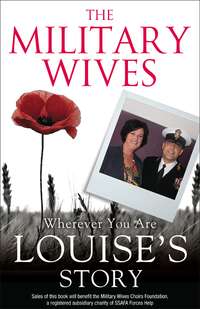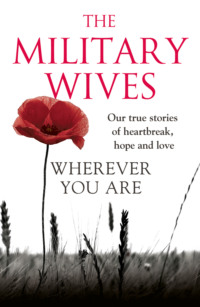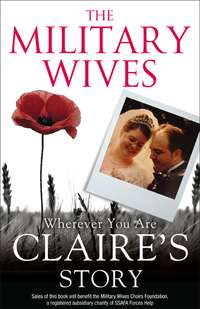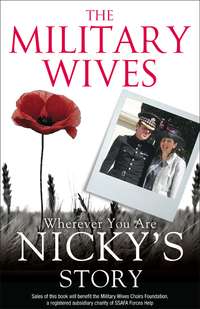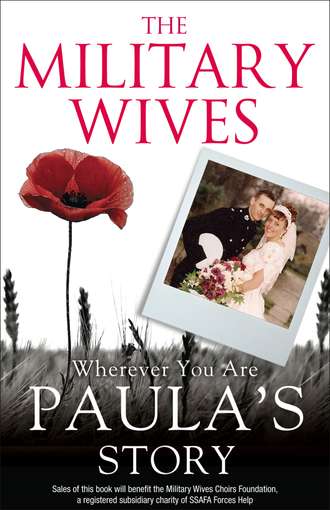
Полная версия
The Military Wives: Wherever You Are – Paula’s Story

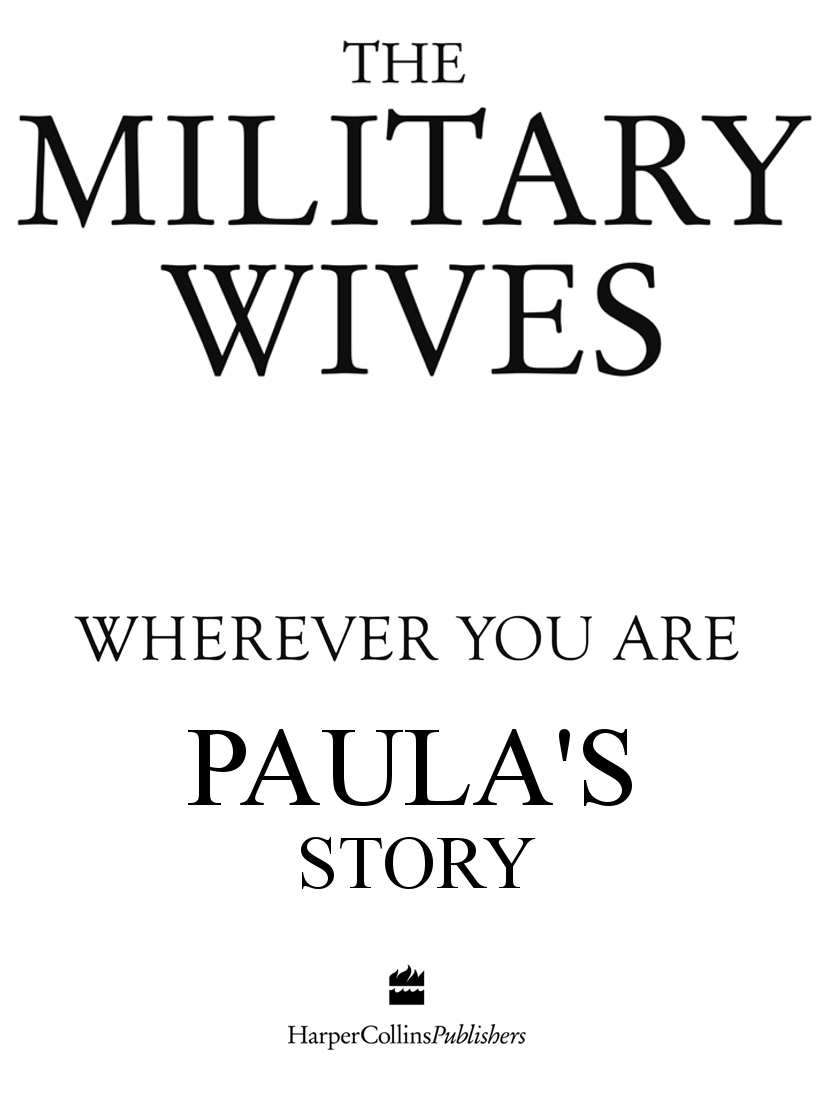
Contents
Cover
Title Page
Words We Use
One
Two
Three
Acknowledgements
Copyright
About the Publisher
WORDS WE USE
We use words and phrases that we pick up from our men – military terms and slang that you may not understand. Here’s an explanation of the ones in this book:
FOB Forward Operating Base: a secured position away from the main base
R & R Rest and recreation: the break, usually two weeks, the men get in order to come home in the middle of a long tour
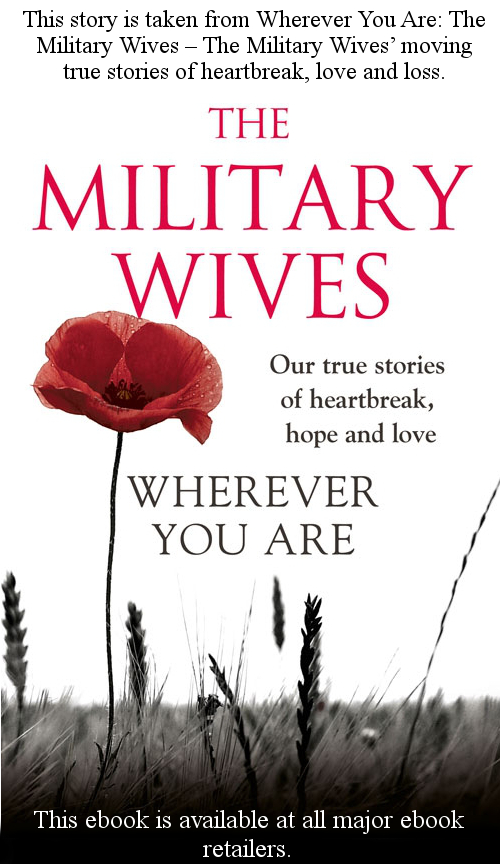
One
I first met James when he was 16 and I was nearly 18, and his boss. He was studying for A-levels and working part time as a carer in a nursing home where I was a senior carer. We hit it off and became friends, but not romantically. I married my first husband and had my son Josh, but we broke up when Josh was only five months old.
I didn’t see James for a couple of years and by then he’d gone away to train as a marine. My brother was going out with James’s sister, and they asked me if I’d like to meet up with him. ‘Brilliant,’ I said, and as soon as I saw him we both knew it was special. I did think: What am I letting myself in for? – because I knew nothing about military life – but I realised I’d never truly been in love before. I used to get butterflies just hearing him on the phone. I’d be lying in bed with the phone and then while chatting to him I’d think: This is proper love. This is how it should be.
He came to my nan’s birthday, and he produced a single rose with a little box and asked me to marry him in front of everyone. I said, ‘Yes, yes, yes.’ I was very excited. There was a little bit of me that wondered if I should get married again. But if you want to live in forces accommodation you have to be married. The ring was a diamond solitaire, which cost him £200 at a time when he was only earning £600 a month. I love it, but I love it most for what it represents, which is our love.
I was so proud of him at his passing-out parade. I came down from Nottinghamshire with my mum and his mum, and I got changed and put my make-up on at the services on the M5. Then he was posted to Scotland, and I was sending money so that he could afford to come down and see me and Josh. We were trying to save for our wedding, and at first we thought we’d have a long engagement. But we just couldn’t do it: we wanted to be together all the time.
By the time we married, James had been posted to Taunton. I loved our first married quarter. I’d have lived in a garden shed and been happy: I was so thrilled to set up a home with him. The neighbours were lovely, and even though I had been nervous about leaving my job, my family and my friends, we were so happy. I can make friends easily: I can talk the hind legs off a donkey. Our world was perfect.
Because I already had my son Josh when we married, we thought if we had a child early together, the age gap would not be too great. I became pregnant, but I was poorly right through the pregnancy and had loads of tests. First of all the doctors thought something was wrong, but then a scan said she was a perfectly normal baby.
I had to have an emergency Caesarean but I was awake and I remember joking with the surgeon: ‘Will you do a tummy tuck while you’re at it?’
But the atmosphere in the delivery room changed suddenly and I saw a look of sheer horror on the doctor’s face. That was the moment everything changed for us. The baby was taken away to an incubator, and the next time I saw her she had a lot of tubes coming out of her.
To cut a long story short, Rhianna was born with a lot of disabilities, caused by a chromosomal abnormality. We were told that there is no other case in the world exactly like Rhianna’s, and we were warned that she might never walk or talk. It was a very stressful time. James and I would stay up late into the night, talking about how we would cope.
We said, ‘What will be, will be. She’s still our daughter.’
Shortly after we brought her home from hospital, we had to move from Taunton to new quarters in Reading. I sat with my baby surrounded by loads of packing cases. The day we moved, she started having fits, and we didn’t even know where the hospital was. There were so many problems, but James remained so calm. He’s been really great with her all the way through, and she loves her daddy. But right then I wanted him to show some emotion. We were told she would not have any quality of life; she would be a ‘vegetable’, which is a word I hate. I didn’t want him to cry his eyes out, but I remember saying, ‘It’s all right for you. You’ve still got your career. You can go away. It’s me that will have to stay here with her.’
It was brutal, what I said, and I took it all back later and apologised. Now I know that him staying calm is a godsend. It’s helped me get through so many crises with her.
Eighteen months later we moved to Lympstone. Every time we moved I had to make contact with different hospitals, different consultants. I knew Rhianna had severe physical and mental problems that could never be changed, but I wanted to help her in any way that I could, so I made up my mind to get her walking. I don’t think there was a dry eye in the church when she toddled down the aisle as a bridesmaid to my brother.
There were more moves, next to Chivenor and then back to Lympstone, and each time we had problems with housing. Rhianna has no fear. She climbs and falls frequently, so she needs a safe environment. We need to remove all drawers from her room, and she falls against hot pipes and radiators. We didn’t know at first that we could get help adapting the house, and everything costs so much. As Rhianna gets bigger, she needs more.
It’s not been an easy few years, but one thing that helped me was working for a few hours a week on a Tesco checkout. At work I was anonymous; nobody knew about life with Rhianna. Customers chatted about the weather, their shopping, anything and nothing. It meant so much to me just to talk about normal things. I found it hard to make friends with military wives. If I took Rhianna to playgroup they would stare, and I felt they talked behind my back. If I took her out, passersby would stare, some of them very rudely. I didn’t mind children staring, but adults do it, too. When I was on the checkout, I was just me and I didn’t have to talk about or think about my problems.
I was on the checkout when I got the news that our third baby, Emelia, was healthy. It was a difficult decision, having another child, because we were told there was a risk that the baby might have the same problems as Rhianna. When the tests were done I told James to ring up with the results, as I couldn’t get away from the checkout. When I got a five-minute break I explained I had to go outside to make an important phone call, and I rang him. He was so calm.
He said, ‘Do you want the good news or the bad news?’
‘Just tell me!’
‘The good news is the baby is OK, perfectly healthy. The bad news, it’s another girl …’ he said, laughing.
I laughed, too, and then I cried. It was the happiest moment I can ever recall. It was as if someone, somewhere, had given me a break. When I went back on the checkout everyone was worried about me because I was still sobbing, but I explained, ‘These are tears of great happiness.’
Конец ознакомительного фрагмента.
Текст предоставлен ООО «ЛитРес».
Прочитайте эту книгу целиком, купив полную легальную версию на ЛитРес.
Безопасно оплатить книгу можно банковской картой Visa, MasterCard, Maestro, со счета мобильного телефона, с платежного терминала, в салоне МТС или Связной, через PayPal, WebMoney, Яндекс.Деньги, QIWI Кошелек, бонусными картами или другим удобным Вам способом.


